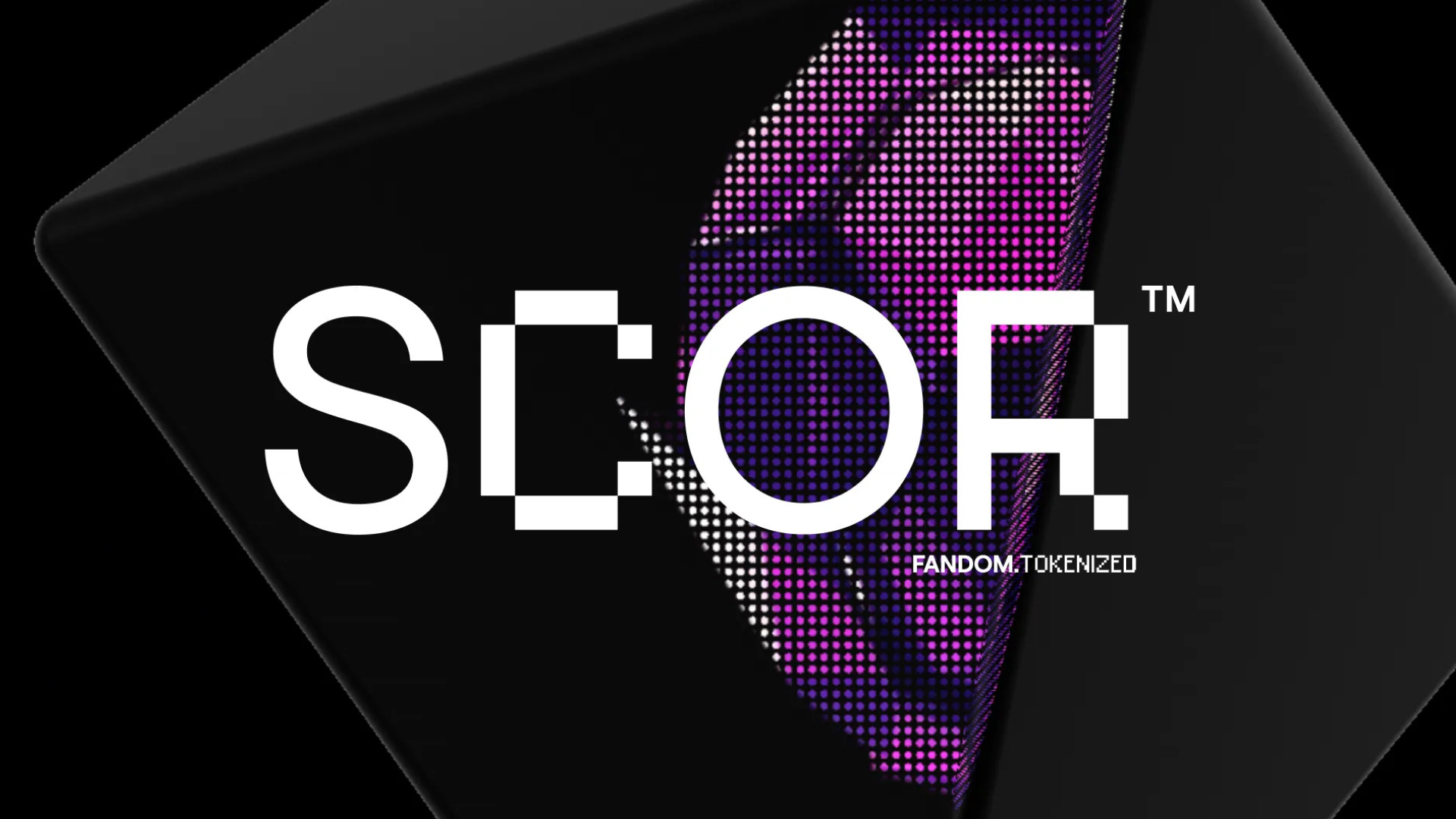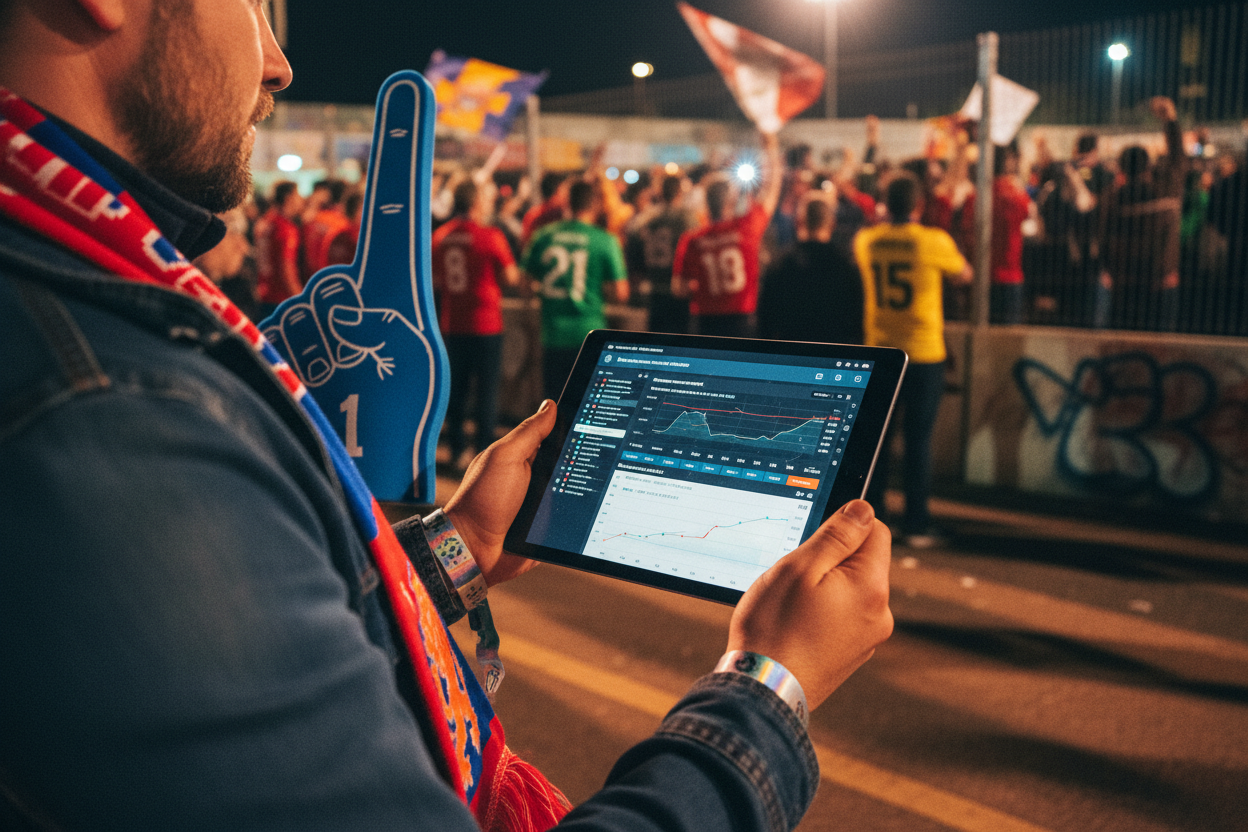
In the rapidly evolving landscape of on-chain sports fandom, few projects have generated as much analytical interest as SCOR Protocol. Positioned at the intersection of blockchain technology, intellectual property (IP) tokenization, and fan engagement, SCOR is rewriting the rules for how fans interact with their favorite teams and athletes. By leveraging programmable rewards and tokenized sports IP, the protocol is not only enhancing digital experiences but also creating new asset classes that are both verifiable and yield-generating.

The Shift to Programmable Sports IP: From Passive Consumption to Active Ownership
Historically, sports fandom has been a passive affair – fans cheer from the sidelines while leagues and rights holders control the monetization of IP. SCOR Protocol disrupts this paradigm by registering licensed sports IP – from teams to individual athletes – directly on a universal ledger. This transforms traditional assets into programmable entities with explicit on-chain permissions. The result is a transparent marketplace where rights usage can be tracked, monetized, and even governed by smart contracts.
For example, a club’s logo or an athlete’s highlight moment can become a tokenized property. These assets are not just collectibles; they are programmable units that can be integrated into games, virtual experiences, or even yield-bearing DeFi protocols. The implications for both IP holders and fans are profound: every instance of engagement becomes a measurable event with direct economic value.
Programmable Rewards: Data-Driven Incentives for True Fandom
At the heart of SCOR’s reward mechanism is the $SCOR token, built natively on The Open Network (TON) blockchain. Unlike legacy loyalty programs or isolated fan tokens, $SCOR establishes an interoperable currency for fan activity across multiple platforms. On Sweet – a popular fan engagement app with partnerships in major leagues – users earn Gems through mini-games and challenges. These Gems are convertible to $SCOR tokens, which can be redeemed for digital collectibles, exclusive merchandise, in-app upgrades, or even tangible rewards like season tickets.
This model aligns incentives across all participants in the ecosystem. Fans are rewarded not just for spending money but for meaningful actions: attending games (digitally or physically), participating in prediction markets, sharing content or completing skill-based challenges. The protocol ensures that each action is logged as an immutable record on-chain – creating an auditable trail of verifiable fandom that can itself become valuable data.
The Economics of Decentralized Fan Engagement
The global sports industry is valued at over $500 billion annually; yet most fan contributions remain unmonetized outside ticket sales or merchandise purchases. SCOR’s decentralized approach removes intermediaries by allowing value to flow directly between fans and IP holders via smart contracts. Rights owners generate yield from their digital assets while fans receive proportional rewards based on their verified activity.
This creates a virtuous cycle where increased engagement leads to greater asset utility – driving more demand for both IP tokens and $SCOR rewards within the network. The system is designed to operate autonomously with transparent rules enforced by code rather than corporate gatekeepers.
For further reading on how programmable rewards are redefining ownership in sports fandom ecosystems, see this detailed analysis.
Moreover, the interoperability of tokenized sports IP is a game-changer for cross-platform engagement. With SCOR’s architecture, fans can move their on-chain assets and rewards seamlessly between different applications, games, and experiences. This reduces friction and unlocks new monetization opportunities for both fans and content creators, effectively bridging once-fragmented fan economies into a unified on-chain ecosystem.
Real-World Rewards Fans Can Redeem with $SCOR Tokens
-

Official Digital Collectibles: Fans can redeem $SCOR tokens for Sweet.io digital collectibles, including licensed NFTs from major sports leagues and teams. These blockchain-verified assets offer unique artwork and exclusive fan experiences.
-

Authentic Team Jerseys: Through partnerships on platforms like Sweet, $SCOR tokens can be used to obtain real, licensed team jerseys from globally recognized sports franchises, enabling fans to wear their allegiance.
-

VIP Game-Day Experiences: Fans can unlock VIP experiences, such as behind-the-scenes stadium tours or exclusive meet-and-greets with athletes, by redeeming $SCOR tokens on supported platforms like Sweet.io.
-

Season Tickets: Select partner platforms allow $SCOR token holders to redeem for season tickets to major sporting events, providing ongoing access to live games throughout the season.
-

In-App Upgrades & Fan Perks: $SCOR tokens can be spent within fan engagement apps like Sweet for premium features, early access to drops, and exclusive digital fan perks.
Data from early integrations with platforms like Sweet demonstrates measurable traction: fan participation rates and average transaction values have both increased since introducing programmable rewards. The transparency of reward distribution, every transaction recorded immutably on the TON blockchain, builds trust among users wary of opaque loyalty schemes. This data-driven approach not only quantifies fandom but also enables granular personalization; teams can tailor campaigns or offer exclusive perks to their most active supporters in real time.
Tokenized Fandom as an Asset Class
The emergence of verifiable fandom as an asset class has significant implications for the broader blockchain sports industry. By transforming engagement into a liquid, tradable asset, SCOR enables fans to build reputational capital that extends beyond any single team or league. This persistent on-chain identity could one day serve as collateral for DeFi lending products or confer governance rights in decentralized sports DAOs.
For IP holders, including clubs, leagues, and athletes, the ability to issue programmable assets means they can capture value from secondary markets previously out of reach. Smart contracts automate royalty distributions whenever IP is used in third-party apps or games, ensuring all stakeholders are compensated fairly without manual intervention.
Risks and Forward Outlook
No protocol is without risk. SCOR’s reliance on smart contract security and the evolving regulatory landscape around tokenized IP will require ongoing vigilance. However, its modular design, anchored by a universal ledger for sports IP, positions it well to adapt as standards mature.
The next phase will likely see more sophisticated modules: skill-based competitions with provable fairness, automated royalty flows across multiple chains via bridge infrastructure, and even integration with traditional ticketing systems for seamless real-world utility. As more leagues and teams onboard their IP to the protocol, and as adoption grows among digitally native fanbases, the network effects should accelerate exponentially.
For those tracking the intersection of sports fandom and Web3 ownership models, SCOR Protocol stands out as a data-driven experiment in aligning incentives through transparent technology. Its blend of programmable rewards and tokenized property rights offers a blueprint for what decentralized sports platforms could become when value accrues directly to those who create it: the fans themselves.









